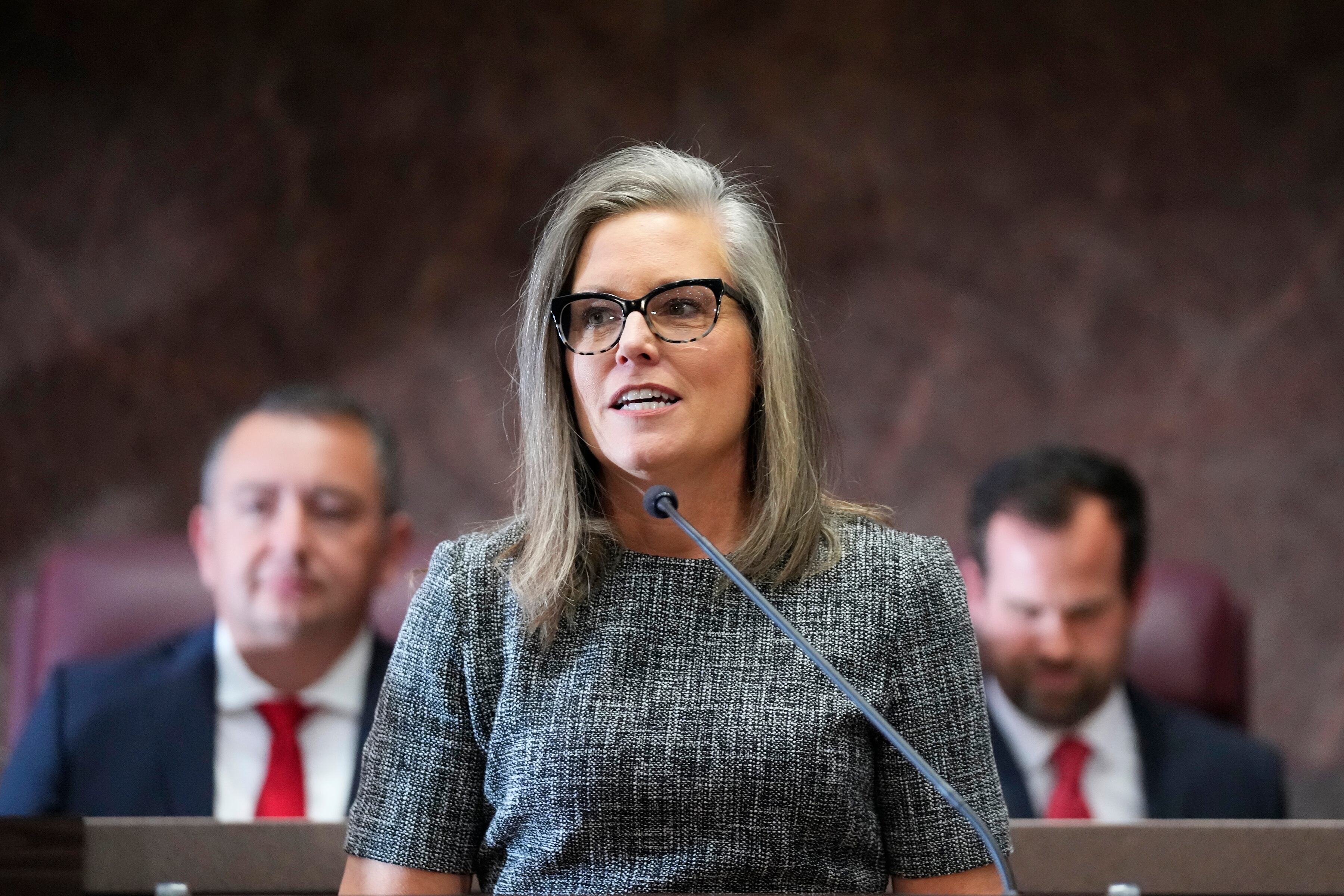A steep budget deficit caused by plummeting tax revenues and escalating school voucher costs will be in focus Monday as Democratic Gov. Katie Hobbs and the Republican-controlled Arizona Legislature return for a new session at the state Capitol.
The Legislative new year officially begins in the afternoon with the governor's annual State of the State address The goal is to wrap up the legislative session within 100 days, but lawmakers typically go until May or June, especially when there are difficult problems to negotiate like a budget shortfall.
The state had a budget surplus of $1.8 billion a year ago. But it now has a shortfall of about $400 million for the current fiscal year and another $450 million shortfall the year after.
A tax cut approved by legislators in 2021 and signed into law by Hobbs’ Republican predecessor, Gov. Doug Ducey, replaced the state’s graduated income tax with a flat tax that took full effect last year. Arizona subsequently saw a decrease of over $830 million in revenues from income taxes, marking a nearly 30% decline from July through November.
Meanwhile, a school voucher program expansion that originally was estimated to cost $64 million for the current fiscal year could now top $900 million, according to budget analysts.
The voucher program lets parents use public money for private-school tuition and other education costs. Nearly 73,000 students participate now that all students can get the vouchers. The average scholarship is roughly $9,700 per student.
Water will also be an issue for the Legislature amid a severe long-term drought in the arid southwestern state. Concerns are growing in Arizona about shortages from the Colorado River system, which provides the state with about 40% of its water, and about shrinking supplies of groundwater and regulation in rural areas.
Calling drought the “challenge of our time,” Hobbs has limited housing development in parts of metro Phoenix over water concerns and canceled state land leases that for years gave a Saudi-owned farm nearly unfettered access to pump groundwater.
Worries about a record number of migrant arrivals on Arizona's southern border could also be a potent issue for state lawmakers in an election year.









